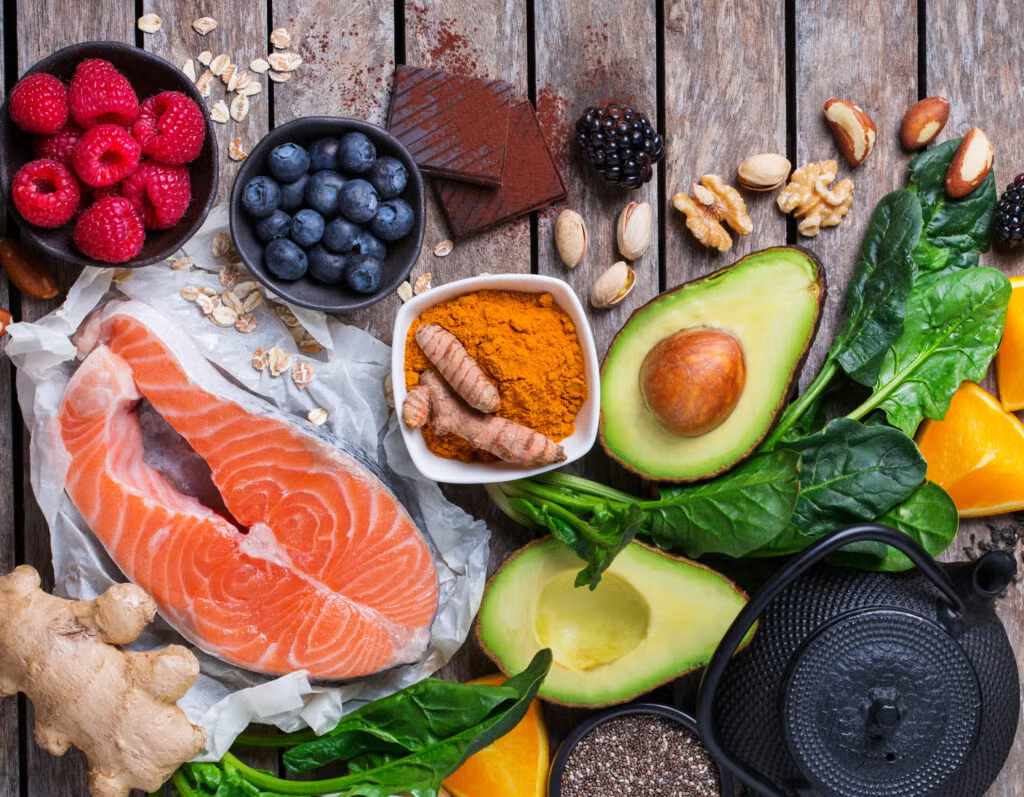
The gut microbiome’s composition directly interacts with immune cells, influencing systemic inflammation. Studies suggest imbalances in gut bacteria (dysbiosis) may trigger autoimmune responses by weakening intestinal barrier integrity. For instance, elevated zonulin levels, a protein linked to “leaky gut,” correlate with increased autoantibody production in conditions like rheumatoid arthritis. Dietary fibers, fermented foods, and polyphenols promote microbial diversity, potentially mitigating these effects.
Molecular Mimicry: When Food Proteins Confuse the Immune System
Certain dietary proteins structurally resemble human tissues, prompting cross-reactive immune attacks. Gluten, for example, shares epitopes with thyroid proteins in Hashimoto’s thyroiditis. A 2019 study found gliadin antibodies in 45% of Hashimoto’s patients without celiac disease. Similarly, casein in dairy may mimic pancreatic cells in type 1 diabetes. Identifying and eliminating trigger foods through IgG testing or elimination diets could reduce antigenic confusion.
Omega-3 Fatty Acids Modulate Inflammatory Pathways in Autoimmunity
EPA and DHA from fatty fish suppress pro-inflammatory cytokines like TNF-α and IL-6. A 2020 trial showed lupus patients consuming 3g/day of fish oil experienced 30% fewer flares. These fats also enhance T-regulatory cell function, promoting immune tolerance. Conversely, high omega-6 intake from processed oils exacerbates inflammation by shifting prostaglandin synthesis. Balancing the omega-3:6 ratio may recalibrate immune responses.
Nightshades and Oxalates: Overlooked Dietary Aggravators in Sensitive Individuals
Alkaloids in tomatoes and potatoes may irritate permeable gut linings, worsening joint pain in rheumatoid arthritis. Oxalate-rich foods like spinach bind minerals, potentially forming crystals that trigger localized inflammation. While evidence remains anecdotal, some patients report symptom relief after avoiding these foods. Individual tolerance varies, underscoring the need for personalized dietary journals.
Fasting Mimicking Diets Reset Immune Cell Populations Through Autophagy
Cyclic fasting regimens (e.g., 5-day low-calorie protocols) induce autophagy, clearing damaged cellular components. A 2021 study noted reduced autoreactive B cells and increased hematopoietic stem cells post-fasting in multiple sclerosis models. This “cellular recycling” may dampen overactive immune signaling. However, prolonged fasting risks nutrient deficiencies, requiring medical supervision.
The Mediterranean Diet’s Polyphenol Arsenal Against Systemic Inflammation
Extra virgin olive oil’s oleocanthal inhibits COX enzymes similarly to ibuprofen. Walnuts and berries provide ellagic acid, which blocks NF-κB activation in lupus-prone mice. Resveratrol from red grapes upregulates SIRT1, a gene involved in immune cell aging. Observational data link Mediterranean adherence to 22% lower autoimmune incidence versus Western diets.
Vitamin D Status Dictates T Cell Differentiation and Autoantibody Production
Low serum vitamin D (<30 ng/mL) correlates with higher anti-dsDNA antibodies in SLE. Calcitriol (active D) suppresses Th17 cells while boosting Tregs, crucial for maintaining self-tolerance. Fatty fish, UV-exposed mushrooms, and fortified foods help maintain levels, though supplementation is often necessary in high-latitude regions.
Chronic High Glycemic Load Fuels Inflammatory Cascades in Autoimmune Disorders
Postprandial glucose spikes activate protein kinase C, increasing vascular permeability and immune cell infiltration. A 2022 meta-analysis tied sugary beverage consumption to 18% faster progression in psoriatic arthritis. Switching to low-glycemic carbs like quinoa or lentils stabilizes blood sugar, reducing oxidative stress on compromised tissues.
Zinc Deficiency Impairs Immune Checkpoint Function in Autoimmune Pathways
Zinc stabilizes the thymus gland’s architecture, ensuring proper T cell education. Insufficient zinc (<70 mcg/dL) disrupts regulatory T cell function, permitting autoreactive clones to proliferate. Oysters, pumpkin seeds, and lentils are rich sources, yet absorption inhibitors like phytates in grains necessitate strategic pairing with vitamin C.
Personalized Nutrition: The Future of Autoimmune Management Through Gut-Immune Axis Mapping
Advances in metabolomics and gut microbiota sequencing enable tailored diets based on individual immune signatures. A 2023 pilot study used AI to predict optimal anti-inflammatory foods for Crohn’s patients, achieving 73% remission rates. As precision tools evolve, “food as medicine” approaches may complement biologics, targeting root causes rather than symptoms.
